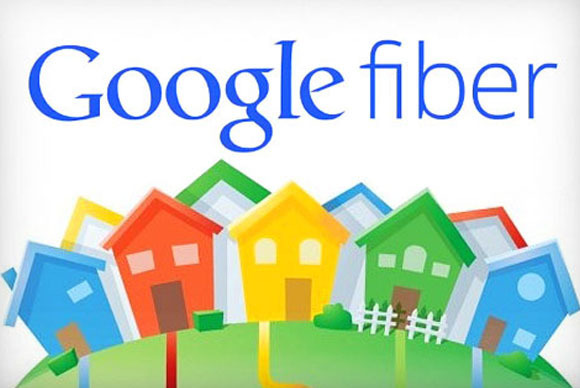Google Fiber currently offers an Internet speed of 1gbps, which is the fastest Internet speed available in the US. Right now, that Internet is only offered in three cities. But Google recently announced an even bigger plan than 1gbps speeds. Google Fiber is currently working on a 10gbps connection. Google’s CFO is optimistic about the timeline for this faster Internet speed, saying that the goal is to have the 10gbps connection available in three years. Though it’s hypothetical right now, a connection this fast backed by powerhouse Google would have many ramifications for the Internet and for Internet service providers.
Higher Speeds Mean Better Applications and Software
The average Internet speed in the US is 9.8 megabits per second. With Google’s proposed 10gbps speed, running Internet software and apps that require a lot of data will be possible. At that speed, you could download an HD movie under one second. Internet apps, software, and cloud storage will be able to adapt their designs to consume more data, translating into faster and more complex performances. This may seem like a speed needed only by big businesses with big data to manage, but that soon might not be the case. With the introduction of 4k streaming on Netflix and other sites, current bandwidths might be stretched too thin to do the high quality justice. Google 10gbps can handle 4k just fine.
Hardware Changes
The speed of an Internet connection isn’t the only thing that affects how fast you can download information. It also depends on servers and the computers themselves. If Google manages to roll out their faster speeds in three years like they’ve said they plan to do, and if they offer those speeds widely, the devices we use to log onto the Internet might see some upgrades as well. Cell phone providers like T-Mobile offer unlimited data plans, which is especially great when you can connect to a wi-fi network with your phone, but phones themselves can’t currently survive at speeds that fast. Japan was able to transmit 10gbps from a mobile device in 2012, but the device itself wasn’t a smart phone. It was a van full of antennae and battery power.
Breaking up Monopolies
The recent merger of Comcast and Time Warner caused quite a stir in the ongoing discussion about cable companies and their power as ISPs. BY creating an entity almost twice as large as it was previously, Comcast has an extreme amount of power when it comes to negotiating deals with tv networks, Internet companies, and the like. Though there are multiple ISPs, the United States is essentially divided into areas with only one or two service provider options. If Google expanded as an alternative ISP with better data speeds than anyone else, the de facto monopolies ISPs have would change drastically.
The Possible Impact on Net Neutrality
As cable providers grow more powerful, their resistance towards net neutrality will only grow. Large Internet service providers charging Netflix and others more for fast streaming is a cost that’s likely going to end up on the shoulders of the consumer. Since the large companies are against net neutrality, a distinct possibility exists that their sheer size will allow them to muscle their way into achieving the results they want. Google as a company is in favor of net neutrality.
If Google becomes a major player as an ISP, their stance on net neutrality becomes a very important one. Since they won’t put restrictions on how and what they stream, Internet quality for Google 10gbps users won’t suffer, the way it might if an ISPs network gets bogged down or has certain sites or content providers restricted.
Though it’s hard to imagine needing 10gbps Internet right now, a faster connection in the average home isn’t the only effect Google will have when they develop this technology. It could impact the cable company monopoly, net neutrality, and the devices we use every day. While the average American home might not have access to Google Fiber in three years, considering their 1gbps is only available in three cities, the specter of Google Internet is on the horizon and promising changes.











